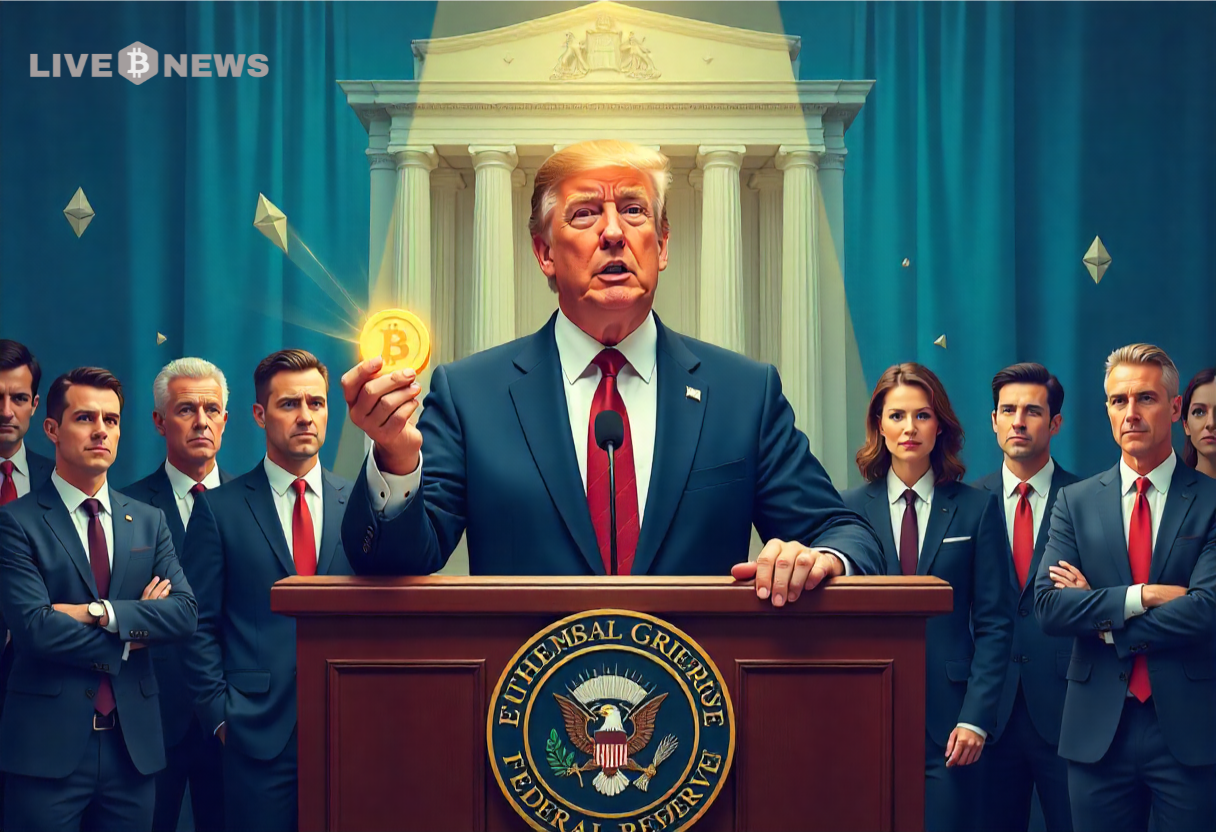- Soon, Fed staff can have small crypto in their hands to acquire real experience.
- Practical expertise aids new crypto regulatory structures.
- A proposal is a sign of the changing attitude of the Fed toward digital assets.
Another new idea was proposed by a Federal Reserve official, Michelle Bowman. She is in favor of letting Fed personnel own small investments in cryptocurrency. Bowman feels this will enhance their pragmatic knowledge.
Source – federalreserve.gov/
According to her, there are current sources through which crypto can be understood. Still, she emphasized that it is better to be in reality. Asset ownership and transfer of ownership are the first-hand information that theory lacks.
What is the Reason Fed Staff Should Own Crypto?
The advantages were presented by Bowman. She stated that the staff should be encouraged to experiment to create genuine understanding. This refers to small and moderate doses of only the learning.
The aim is to provide employees with the working knowledge of digital assets. Bowman believes that the flow of transfers and ownership can only be demonstrated through the on-the-job usage.
It links up with the larger Fed strategy. It will soon be much more vigilant in supervising crypto issuers. Such a future framework is supported by Bowman. The Fed is new in letting its staff hold crypto. They traditionally evaded possible tensions through the prohibition of ownership.
Nonetheless, Bowman does not exclude the possibility of ignorance due to a lack of experience. The attitude towards digital finance has changed with this position. She addressed this on the 19th of August, 2025, during a Federal Reserve public address.
What Is the Risk and Reward?
Allowing the ownership of crypto is a problem. Workers ought to act ethically and refrain from conflicts of interest. However, Bowman thinks that the educational merit exceeds these dangers.
Having direct experience is a way for regulators can identify risks more easily. It also puts in place a basis to oversee sophisticated crypto products.
Her opinion is an indication of a progression towards an attitude of embracing innovation cautiously. The highly educated policymakers will be more able to keep up with the rapid development of crypto.
The move would result in improved financial control. Employees knowledgeable about crypto at the Fed could enhance the rule-making and enforcement.
Contact with digital assets in such a form can enhance the awareness of systemic risks. It also increases confidence in regulatory decisions that incorporate crypto. The idea of Bowman can be debatable, but it can be seen as a changing attitude of the Fed.
What Might This Mean to Future Policy?
Soon, the Fed will develop direct regulations for the crypto issuers. The level of crypto expertise among employees may determine the rules. The tension between encouraging innovation and safeguarding investors can be alleviated with its help.
First-hand ownership and transfer give insights that cannot be provided by textbooks. It can hasten decisions and the writing of regulations.
Bowman does not complete the policy, but urges internal discussions of whether to allow ownership. This practice may force other regulators to withdraw restrictions. A good example worldwide can be established in case the Fed takes the lead.
Overall, the implication suggested by Bowman is the significance of knowledge. The crypto is entering the realm of finance. Regulation teams should know it back to front.
Permitting Fed employees to possess small amounts of crypto may be a revolutionary decision with respect to regulation.
